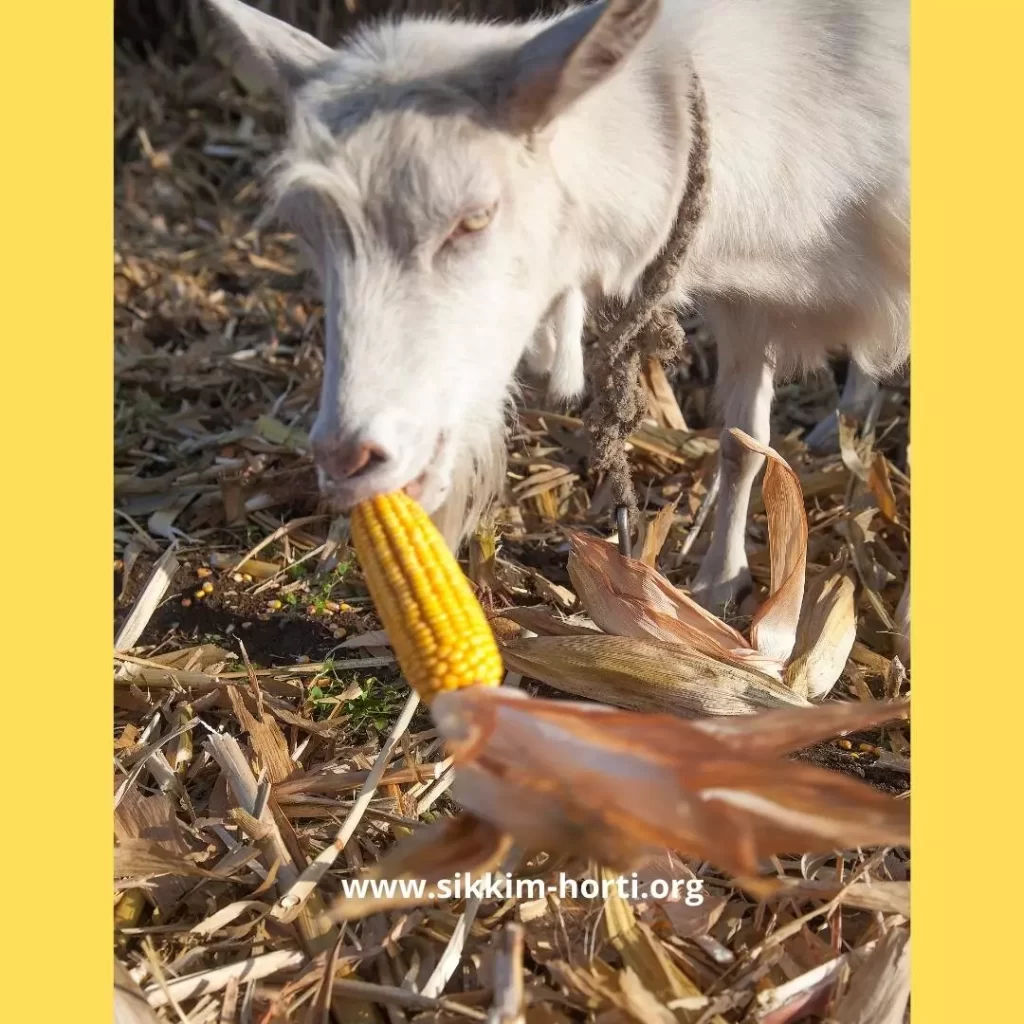Many people ask, “Is corn good for goats?” and the answer is yes! Corn is a grain that many farmers feed to their animals. It’s an excellent source of protein and carbohydrates that can help keep your goat healthy. Of course, you should always consult with your vet before feeding any new food to your pet.
Contents
How much corn can I feed my goats?
Corn is an excellent source of energy. It’s also rich in protein, which can be difficult to find if you are feeding your goats on pasture alone. While some people calculate the percentage of corn they feed their animals and adjust it according to age, weight or other factors – others simply give a certain number of pounds per animal per day.
Goats seem to do well when fed between .25 percent and one percent of its body weight each day as long as there is plenty of fiber included with the diet. If you have access to free-choice hay, then that should provide enough fiber for your goat(s). One pound (.45 kg) will typically yield about five ounces (.14 kg) of dried grain (depending on moisture content).
Is whole corn bad for goats?

Whole corn is not the best feed for goats. It lacks proper nutrition and can cause stomach upset, bloating and other digestive problems such as acidosis. As a result of whole corn being difficult to digest it will ferment in the rumen which could lead to lactic acid build up. This results in decreased milk production or goat death depending on severity.
If you do choose to give your goats whole corn make sure they are getting ample hay or grass with their diet too so that fermentation does not occur due to lack of fiber intake from plant material combined with high concentration of sugars found naturally in plants but also added sugar sources like molasses (which us humans love).
It’s important that you keep an eye out for signs of acidosis in your goats. A few signs are slobbering, acting drunk or listless, loss of appetite and increased breathing rates due to discomfort. If left untreated this could result in death so it’s important that you keep an eye out for early signs of trouble!
Also Read :Why Do Goats Poop Pellets ?
Is cracked corn good for goats?
Cracked corn is good for goats and other livestock because it has a higher nutritional value than whole corn. Cracked or ground can be particularly beneficial to older animals who have trouble chewing on hard grain kernels. It’s also helpful when feeding young kids, as they are still getting their permanent teeth in place. But, what about my goat?
Is cracked corn bad for my goat? Many people will answer this question by saying no, but there are some cases where you should avoid giving your goat cracked corn. When the animal gets an ear infection, any grains that cause excess gas due to fermentation in the stomach may further irritate these lesions leading to more pain and discomfort.
So what do I feed if not or cracked corns? You can feed the goat whole corn, as it will provide similar benefits to cracked and many omaha vets may even recommend this grain over the other. If you’re worried about your goats teeth though, grind up some green beans into a fine powder and mix that with their regular food instead of giving them something harder for them to chew on like nuts or carrots.
Are corn husks bad for goats?

No. Corn husks are fine for goats to eat – pigs, on the other hand…
Yes, but only if they’ve been sprayed with insecticide or herbicides. Otherwise, it’s likely that the corn plant itself was contaminated and is therefore not safe for your goat to munch on! But even then some people say just don’t let them eat too much of it because there can be a lot of salt in corn plants due to irrigation water usually being really high in sodium (salt).
This definitely applies more to soybeans than any other plant though since they’re higher than anything else I know of when looking at how much sodium is absorbed during their growth cycle by comparison to calcium etc.
